#Henry Woolf
Text
youtube
THE LION IN WINTER (1968)
Grade: B
Such an interesting movie. Like a coming home for holidays movie but with a royal family. Had some funny light hearted moments and a crazy good cast. Great dialogue.
#The Lion in Winter#B#1968#Drama Films#Anthony Harvey#King Henry#Biography#History#Christmas#Peter O'Toole#Katharine Hepburn#John Castle#Anthony Hopkins#Timothy Dalton#Nigel Terry#Nigel Stock#Jane Merrow#O.Z. Whitehead#Kenneth Griffith#Henry Woolf#Throne#Prince#Royal Family#Youtube
2 notes
·
View notes
Text
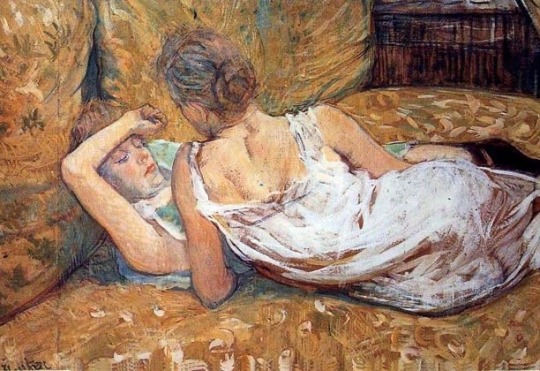
Devotion: The Two Girlfriends (Henri de Toulouse-Latrec, 1884)
I am reduced to a thing that wants Virginia. I composed a beautiful letter to you in the sleepless nightmare hours of the night, and it has all gone: I just miss you, in a quite simple desperate human way.
(Vita Sackville-West. Letter to Virginia Woolf. January 21st, 1926)
#historical letters#letters#quotes#historical love letters#love letters#i love them#virginia woolf#vita sackville west#them!!!#and this painting though it's so great#henri de toulouse lautrec#lgbtq history#literature
125 notes
·
View notes
Text

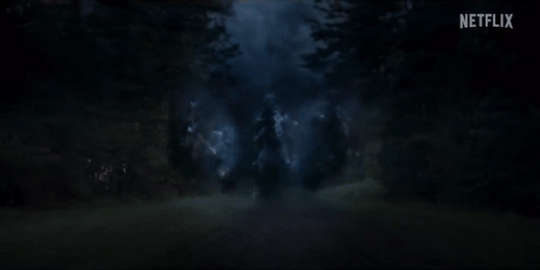

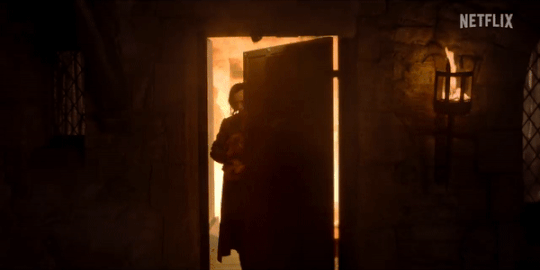



Now... for the first time, I understand real fear.
THE WITCHER: Season 3 | Official Teaser
#the witcher#the witcher netflix#the witcher season 3#thewitcheredit#witcheredit#geralt of rivia#yennefer of vengerberg#ciri#cirilla of cintra#cirilla fiona elen riannon#jaskier#philippa eilhart#rience#henry cavill#anya chalotra#freya allan#joey batey#cassie claire#sam woolf
70 notes
·
View notes
Text
me: /scrolling through TikTok/
Taylor Zakhar Perez: hey look it's me in Vogue Worlds weird theater mashup involving Virginia Woolf quotes that were in Red White and Royal Blue but said as Romeo to Juliet
me:.... FINE I'LL READ @kiwiana-writes 's Much Ado AU again
(also linking the weird Romeo and Juliet thing from Vogue World below. It was honestly kind of a vibe)
youtube
#rwrb#red white and royal blue#alex claremont diaz#taylor zakhar perez#virginia woolf#vita sackville west#alex and henry#really weird experimental theater as a fashion show#vogue world 2023#Youtube
30 notes
·
View notes
Photo

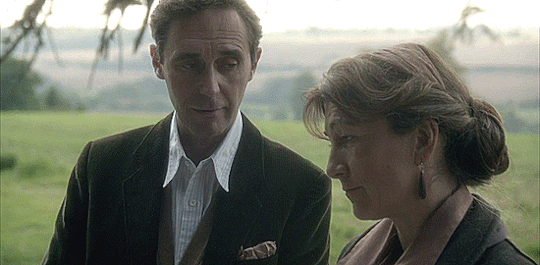


EVE BEST & GUY HENRY as VANESSA BELL & LEONARD WOOLF in “Life In Squares” - thanks to @evebestonline for the footage.
#had to do because again it's such a gentle scene#but also i have a love for guy henry from his holby days#and they're both just SWELL#my gifs#life in squares#lifeinsquaresedit#eve best#guy henry#vanessa bell#leonard woolf
76 notes
·
View notes
Note
what kind of books do you like reading?
My favorite era is 19th century Russian literature. Some of my favorites from there are Dead Souls by Gogol, Fathers and Sons by Ivan Turgenev, Eugene Onegin by Alexander Pushkin, and Oblomov by Ivan Goncharov (I was utterly baffled as to why everyone was talking about Ivan Goncharov when I came back to Tumblr!). I loved a lot of early 20th century American literature, in particular F. Scott Fitzgerald, who was an early hero, and I also read a lot of Joseph Heller and Vladimir Nabokov (Russian/American). I've read everything by Franz Kafka—even the bizarre stuff, like Amerika—and loved it all. My favorite writer of all time is Virginia Woolf, and I love reading writers who experiment with style (Lewis Carroll, of all people, has a nice early example of stream of consciousness with Sylvie and Bruno). I think the best piece of writing I've ever seen from America is Invisible Man by Ralph Ellison.
I've also read and enjoyed some stuff from the 16th-18th centuries (in particular, Ludovico Ariosto's Orlando Furioso, Edmund Spencer's The Faerie Queene, and John Milton's Paradise Lost), but a lot more that's a lot older. Giovanni Boccaccio's The Decameron is a great collection of tales like The Canterbury Tales, but better (note: I haven't yet read 1,001 Nights. Thomas Malory's Le Morte d'Arthur was a lot of fun. I slowed down a lot about eight years ago). I even love the fake ones that are tales within tales like Jan Potocki's The Manuscript Found at Saragossa. But I love chasing down and reading older works, like sagas and epics. Some of my favorites are The Nibelungenlied, The Kalevala, Njal's Saga, and The Epic of Sundiata. Gilgamesh is absolutely incredible. I've read some clunkers, though, like The Song of Roland, which I found dry, dull, and short.
As my reading slowed, I liked to read books aimed at young readers. Growing up, I loved the Oz books, which I find to be an utterly fascinating example of uniquely American (and non-European) fantasy. We have that and Little Nemo, but most other fantasy you get (outside of modern times) is distinctly European, and owes more to Lord Dunsany and Tolkien than anyone else. I loved The 13 1/2 Lives of Captain Bluebear, which I just finished ready to my daughter (Walter Moers). Michael Ende's The Neverending Story is probably the best book for young readers I've read. And then there's the Moomin books by Tove Jansson... What a find those were! Written for kids, but so unbelievably melancholic and subtle! Every page is packed with so much loneliness and longing! I couldn't even believe what I'd read after reading Tales from Moomin Valley. "The Fillyjonk who Believed in Disasters" is something I think every adult should read. It reminds me a bit of The Magic Mountain (see below) in how subtly it captures a character or series of character traits that are quite natural and recognizable, but so hard to pin down! Tove Jansson was brilliant.
For utter, nonsensical, bizarre, indulgent, and absurd escapism, I read E. T. A. Hoffmann. It's hard to even describe how ridiculous his stuff is. Like...you read this stuff, and are saying, "You can't DO that! You'd be laughed off AO3 for that!" And yet he does. And he doesn't care. He had an audience of one, and that was himself. I have no idea how his works are even remembered. Utterly bizarre.
That captures a lot of it. Here are some that don't fit elsewhere:
The Buru Quartet by Pramoedya Ananta Toer (masterful)
Death of a Salesman by Arthur Miller (wrecked me)
Moby Dick by Herman Melville (tore through it!)
Don Quixote by Miguel de Cervantes Saavedra (this one, too! Thick book, but such a quick and joyful read—and written with such exquisite detail!)
Frankenstein by Mary Shelley (one of the best of the 19th century)
The Magic Mountain by Thomas Mann (so subtle... Let me tell you, this is a long book, and like, it's 90% over, and suddenly this new character is introduced, and it's like, "What even is this…?", and yet, somehow, he takes like 50 pages, and you suddenly care about this guy... Astonishing)
The House of Mirth by Edith Wharton (tour de force; her best, in my opinion)
Cat's Cradle by Kurt Vonnegut (his best that I've read, and the one I'd recommend to everyone)
Forest of a Thousand Daemons by D. O. Fagunwa (terrible translation, but so wonderfully inventive!)
Black Elk Speaks (I want to mention this, because I really loved it, but it has a problematic history, so fyi)
True Grit by Charles Portis (one of the most beautiful short novels I've ever read; the Cohen Bros. adaptation is actually very, very close to it)
The Awakening by Kate Chopin (what a smack in the face that one is!)
The Tempest by Shakespeare (my favorite of his)
The Narrative of the Life of Frederick Douglass (best written work from America in the 19th century)
The Autobiography of Benjamin Franklin (by contrast, one of the most ridiculous things I've ever read in my life; HILARIOUS)
Journey to the West by Wu Cheng'en (read the whole thing, and...wow. lol So much repetition with humor throughout capped off by brilliance)
The Bostonians by Henry James (the best demonstration of exactly what he aimed to do: produce an ending that has two equally plausible and utterly opposite interpretations that can both be supported textually)
Nohow On by Samuel Beckett (the culmination of his work, and a worthy one)
Three Tales by Gustave Flaubert (I bawled—loudly—after reading "A Simple Heart"; I couldn't help it)
Thanks for asking this! It's been so long since I've really read... It's nice to remember. I wanted to read the Studs Lonigan trilogy for ages now... Oh, and I went through a Gabriel García Márquez phase! And Tom Robbins! And, of course, I've read all the wonderful comic novels by my friend Nina Post, whose wit astounds me.
Okay, now I'm just not getting to sleep. But this is some of what I've read that I've loved. Also, for certain things, I've read a lot (like 19th century Russian literature and Samuel Beckett), so I can tell you what not to read. For example, A Hero of Our Time by Lermontov? Pass. Same with The Golovlovs by Saltykov-Shchedrin. You can probably pass on War and Peace, as well, due to its girth, but you're going to miss some good stuff (amidst a lot of dry stuff).
Okay, hitting the button now! I'm done.
(Oh, but if you were assigned Their Eyes Were Watching God and kind of passed on it because it was a "school book", that was a mistake!!!)
(Oh, Cane by Jean Toomer!)
(Oh, and if you want a short one that has a "wah-wah!" ending, check out As I Lay Dying by Faulkner! lol That rascal...)
(OH! And the "school book" thing? Hard ditto on Of Mice and Men. Holy shit, that book... Wow.)
(OMG BABBIT!!!!! I loved it!!! Pass on Main Street, though.)
(Oh, and John Updike can miss me with his Rabbit stuff... YIKES!)
(Oh, and if you like Woody Allen's style but not Woody Allen, try Portnoy's Complaint.)
(Last one: Jasmine by my short fiction professor Bharati Mukherjee, who sadly passed away far too soon. On the last day of class, she'd forgotten she was going to have us read Notes from Underground by Fyodor Dostoevsky. As we were walking out the door, she made us promise to read it. I never saw her again, but I did, Ms. Mukherjee, and it was tremendous. Thank you so much for what you gave me. I had so much trouble showing my work to other people before that class. You helped me so much, and I wish I could've told you. You may think those who have influenced you will be around forever for you to thank one day, but they're not. Today's the day. Tell them what they meant to you. You'll regret it if you don't.)
#books#reading#literature#too many to tag#but I'm tagging Virginia Woolf#she's amazing#if I could recommend one for Tumblr#Orlando#you won't regret it#oh and Emily Dickinson#OH THE BOSTONIANS BY HENRY JAMES#adding it now
63 notes
·
View notes
Text
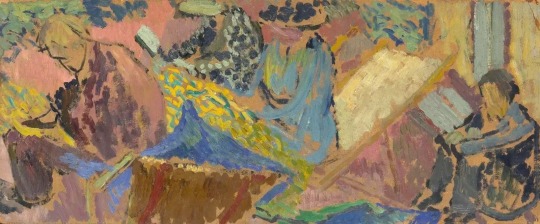
Duncan Grant, The Group at Asheham: Adrian Stephen, Virginia Woolf, Vanessa Bell, and Henri Doucet 1913
20 notes
·
View notes
Text
Seeing Double
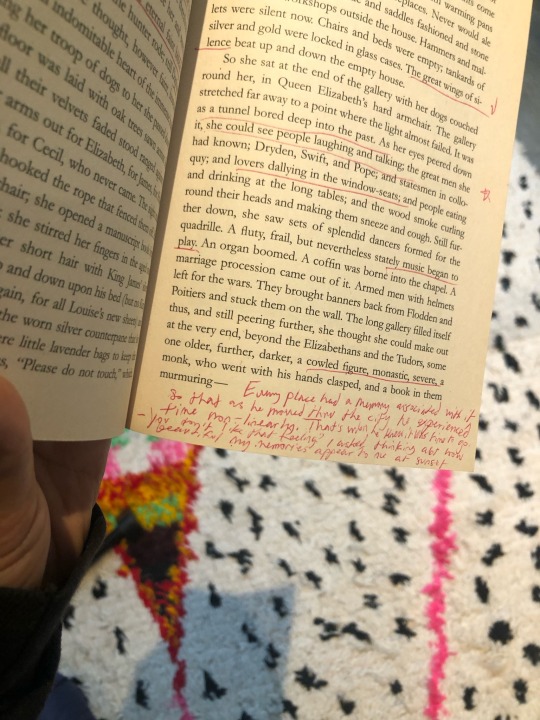
The shock of familiarity, of recognition even as what is in front of you is not what you have seen before, a paramnesiac fugue, for the past and its phantoms are playing a trick on you. Thus, the Greek teacher traveling alone in Switzerland in Han Kang’s novel Greek Lessons gets off a boat in a small city called Brunnen, drawn by a memory of the Suyuri neighborhood (now Suyu-dong) of Seoul, the neighborhood flanked by two mountain peaks: Baekundae to the left and Insubong to the right. Brunnen had conjured a childhood landscape in the mind of the weary wanderer. When he disembarked at the quay, a pale blond-haired man sitting at a café catches his eye. “He didn’t resemble you in the slightest, and yet he made me think of you.”
Leaving, he must lose his object all over again—it doesn’t matter that the German and the Swiss man have been transposed, so powerful is the mind’s capacity to pin all the unrealized hopes associated with lost objects onto ill-founded doppelgängers, all the like-you-but-not-really-s who step into our field of vision, oblivious to the idiosyncratic characteristics they possess that bind them to others—to strangers—circulating in the world. It could be a birthmark, a verbal tic, their eyes, their gait, their style of thinking or sartorial preferences—something as deep as “they both had mothers who died when they were thirteen” or as superficial as “they both wore red pants.” Whatever the detail that binds the object and its double, the nervous system responds as though they were one and the same, returning the perceiver of the echo to the same physiological state induced by the originary object.
I pause writing in my journal to read Deleuze’s Bergsonism, get lost for an hour trying to understand Bergson’s theory of memory and duration, of the coexistence of the past and present, rather than the linear view of time. Deleuze: “The past and the present do not denote two successive moments, but two elements which coexist: One is the present, which does not cease to pass, and the other is the past, which does not cease to be but through which all presents pass.”
There are people who live this split-screen existence more intensely than others, who experience the-past-in-the-present perhaps even more vividly than the scene that is in front of them. Is that the quality possessed by the characters in Han Kang’s novels and Theo Angelopoulos’s films that hypnotizes me, the elegiac atmosphere, the way the haunted melancholics walk around, out of sync with the world? In Angelopoulos’s Eternity and a Day, Alexandros, a middle-aged, terminally ill poet with a beard, is driving his car at night. He stops at a stoplight. When the light turns green, he does not move. Oh no—is he dead? I thought while watching the scene. He sits there, stock-still, like a protruding stone in a river, while the cars flow around his unmoving vehicle—a metaphor for the way our tempo sometimes comes unstitched from the tempo of the world. For the entire night he sits frozen, stares out the windshield until sunrise, then drives away.
His daughter informs him—she has sold his old house. He returns to the old seaside house in Thessaloniki. As he paces the derelict building, he hears the voice of his late wife Anna reading a passionate letter she had written to him while sitting by the sea. The letter concludes with the words: “Give me this day.” As the last line rings out, the shutters swing open, revealing a stunning vista of the sea of memory, a vision of the past: to the right, Alexandros’s mother sits on the balcony rocking his newborn baby, while below, his dead wife Anna and their friends sing on the shore. In the distance, all are facing away from him, toward the sea, until she and she alone turns to face him, her beautiful white dress blowing in the sea breeze. Then he’s down there, inside the memory as she implores him to join them in dance. The other people fade, until she too disappears.
On the shore he delivers a soliloquy on the split-screen life: “With words, I brought you back. You are there. And all is true and waiting…for the truth. For the truth.”
*
I remember, last fall, walking around the Kreuzberg neighborhood of Berlin with Al Burian, killing time before heading over to Sylvia Schedelbauer’s dinner party. Under the crepuscular sky, we were indecisive about where to go and eventually wandered into a graveyard, where we walked among the dead until it was fully dark. Al said that he knew it was time to leave Chicago when every inch of the city had a memory attached to it—he could no longer simply walk around without feeling held captive to the past, to the mental stream of associations summoned by particular places. Berlin was becoming that to him now: every location came with customized emotional baggage. As he was saying this to me, I knew he was thinking about a memory he had associated with the graveyard we were in—I dared not ask what the memory was.
We walked all the way to the other side of the graveyard. Did he go off to find a place to piss in the dark? We were talking about dreams. I was telling him about the monomanias implanted by my dreams, how they possess my soul, how I cannot stop until the oneiric prophecy has been realized. “Which is a liability because, as technicians of the sacred know, not all dreams are true. Penelope knew this. In Homer’s Odyssey, she spoke of the difference between dreams that pass through the gate of horn (true ones) and dreams that pass through the gate of ivory (false ones)—the Greek for horn being similar to the word fulfill, while ivory was similar to deceive. But what method did Penelope use to sort the true dreams from the false ones?? If only I knew! Perhaps your father could help me.” (His father being an emeritus professor of Classics and scholar of ancient Greek literature.)
He told me about how he had found the collected works of Freud discarded on a street, how he regretted not taking the volumes. I told him about a dream I had as a teenager: “You appeared in a retro living room with Björk, standing in front of a switched off TV, in a Lynchian set that exuded a surrealist Americana vibe. I thought to myself—my two favorite people! How happy I was in the dream.” (That was two decades ago. Then I was just a fan of his writing. His worked had ignited, in me, a desire to write—to become a writer.)
When we walked back to the entrance of the cemetery, the gate was locked. We panicked for a moment, until we found a tree stump that we climbed onto to hoist ourselves over the fence. While walking up the staircase to Sylvia’s top-floor apartment, I said, “And what would have happened if we got trapped in the graveyard all night?”
“We’d probably talk about our childhoods until sunrise,” he joked.
I was wearing my t-shirt emblazoned with the opening page of Virginia Woolf’s The Waves, which I bought when I was teaching the novel in my “Water and the Imagination” class. (“Why not rep the most epic opening in all of literature?” I joked to my students, pointing to my shirt.) Later, as I was reading the ending of Woolf’s Orlando, I came across a passage that made me want to email Al to ask what memory he was thinking about as we perambulated through the cemetery in the diminishing light. I remember the dread in his voice as he spoke softly about the days getting shorter, the darkness that was the coming of winter—would it be the first winter without his mother?
I grab my copy of Orlando to look for the quote that made me think of that night.
Orlando bemoans:
“‘Time has passed over me,’ she thought, trying to collect herself; ‘this is the oncome of middle age. How strange it is! Nothing is any longer one thing. I take up a handbag and I think of an old bumboat woman frozen in the ice. Someone lights a pink candle and I see a girl in Russian trousers. When I step out of doors—as I do now,’ here she stepped on to the pavement of Oxford Street, ‘what is it that I taste? Little herbs. I hear goat bells. I see mountains. Turkey? India? Persia?’ Her eyes filled with tears.”
How much heavier the weight of memory must have been for Orlando, who had accumulated three centuries of experience! Woolf reminds us: “For if there are (at a venture) seventy-six different times all ticking in the mind at once, how many different people are there not—Heaven help us—all having lodgment at one time or another in the human spirit?”
In the margin of the book, near the passages I had marked, I had jotted down a note about the exchange in the graveyard:
Every place had a memory associated with it, so that as he moved through the city, he experienced time non-linearly. That’s when he knew it was time to go. “You don’t like that feeling?” I asked, thinking about how beautiful my memories appear to me at sunset.
(And isn’t reading so much like walking through the memory-conjuring cemetery? That’s why my marginalia so often consists of memories triggered by the text I’m reading, the way Woolf’s description of all the times ticking inside us made me think of Al.)
#film#literature#theo angelopoulos#dreams#Al burian#hang kang#Homer#memory#time#deleuze#bergsonism#henri bergson#virginia woolf#Woolf#orlando
20 notes
·
View notes
Text
if oscar wilde had access to tumblr he would post some crazy shit and go feral while getting more popular every day
#dark academia#literature#chaotic academia#bram stoker#the secret history#donna tartt#dead poets society#light academia#oscar wilde#dracula#romantic academia#classic academia#hopeless romantic#poetry#the picture of dorian gray#virginia woolf#henry winter#jonathan harker#classic literature#richard papen
102 notes
·
View notes
Text

#richard burton#elizabeth taylor#old hollywood#burton and taylor#black and white#vintage#love#1960's#photography#60's#hamlet#the taming of the shrew#king henry viii#shakespeare#cleopatra#the exorcist#who’s afraid of virginia woolf#1984#poetry#portrait#smoking#guys who smoke#old hollywod glamour
5 notes
·
View notes
Text
diversity loss! lord henry wotton exists
#listen#no one is straight in that book#not even the man who ruined everything#books & libraries#bibliophile#currently reading#lord henry#lord henry wotton#tpodg#the picture of dorian gray#picture of dorian gray#dorian gray#basil hallward#oscar wilde#classic literature#literature#sylvia plath#virginia woolf#poetry#beauty
87 notes
·
View notes
Text
Dear diary,
since I can't seem to find you and I don't know where you got lost in my home, next week I'm coming home and I'll search for you again. Be there wherever you are because there are so many things I have to tell you, and it's getting harder and harder with each passing day. I wedge in between my nerves, hiding them behind my plain mask. How long would I have to wait until I found you? Sometimes I want to spill words, and sometimes I want to spill my tea all over you, and this rage is dwindling, trying to fit into the narrow passage that has been left hollow for the past five years and telling me to do the latter. I feel like I've been holding my breath all these years, and now I can't seem to hold it anymore. The air wants to gush out so badly, and my heart has again started working on its own.
#dear diary#book excerpt#writing is hard#virginia woolf#slyvia plath#emily bronte#charlotte bronte#jane austen#emily henry#sally rooney#sarah j maas#classic literature#french literature#russian literature#anna karenina#leo tolstoy#writing my heart out#writing prompt#poems on tumblr
5 notes
·
View notes
Text
insan kalbi çok dayanıklıdır, yok edilemez; kırıldığını ancak belleğinde canlandırabilirsin.
henry miller - insomnia
#henry miller#insomnia#uykusuzluk#oğlak dönencesi#yengeç dönencesi#seksus#kitap#edebiyat#blogger#kitaplar#felsefe#blog#kitaplık#kitap kurdu#şiir#virginia woolf#saatler ve geyikler#andrei tarkovsky#solaris#beyaz geceler#fyodor dostoevsky#orhan pamuk#sessiz ev#clichy'de sessiz günler#ingeborg bachmann#malina#thomas mann#venedikte ölüm#marsel proust#alain de botton
29 notes
·
View notes
Text
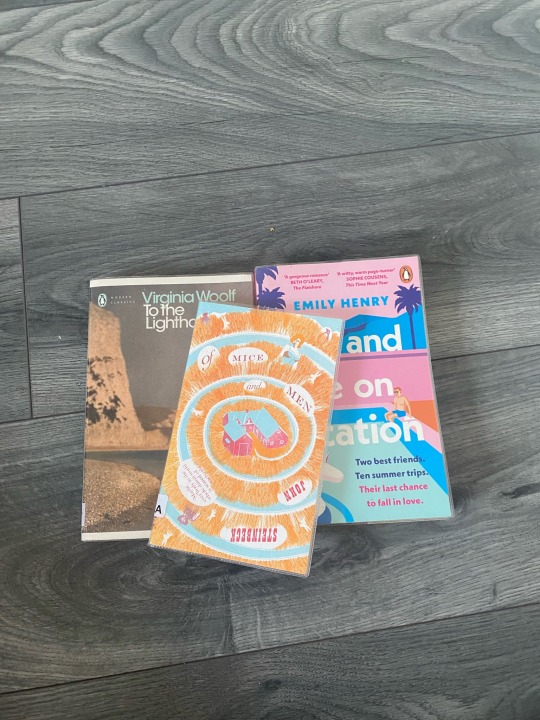

Lunlun’s reading challenge
Kind of a lazy weekend this week, I went to the library to do some tasks - I basically just did some printing and scanning. I walked out with three books which wasn’t the intention but hey ho. I actually really liked this library it was a bit of trek (about 40 minutes) but on the bright side I got to soak up nature. I’ve also come to the conclusion I need some more hobbies so I’m thinking of picking up knitting since I’ve always wanted to learn.
Which book made you laugh the most?
Probably loveless by Alice Oseman
Share a moment from a book where you had to put the book down and take a deep breath.
In I was born for this when everyone goes out searching for lister….
#readingwithlunlun#bookblr#booklr#alice oseman my love <3#gatherreads#to the lighthouse#virgina woolf#of mice and men#john steinbeck#the people we meet on vacation#emily henry
19 notes
·
View notes
Text


Henry Townshend as a pony and then 2 silent hill ocs. Also as ponies 👍
You can't tell it's him but Jennifer belongs to @nt3000s
#others ocs#silent hill#ben woolf#silent hill oc#jennifer lehshnerr#henry townshend#silent hill 4#mlp#sorry for ponying
4 notes
·
View notes
Text
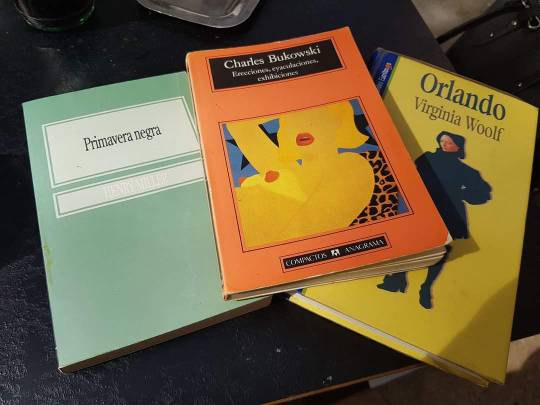
All I need
0 notes